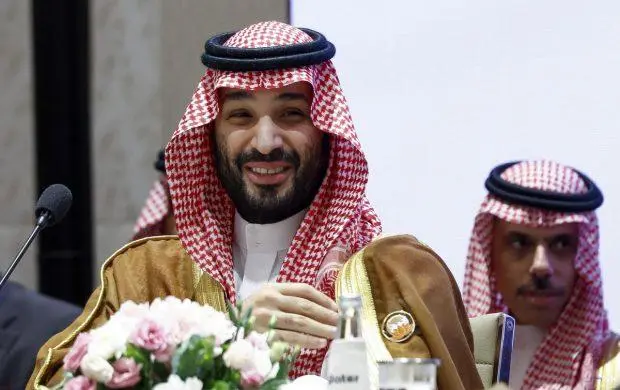In a rare interview with Fox News on Wednesday night, Saudi Crown Prince Mohammed bin Salman disclosed that negotiations over Israel means the prospects of normalised relations between both countries ‘get closer’ every day, while highlighting that treatment of Palestinians remains a ‘very important’ issue to be resolved.
Africa Today News, New York understands that in exchange for a U.S. defence contract and assistance with the development of its own civilian nuclear programme, Saudi Arabia and the United States are negotiating a significant accord that would normalise relations with Israel. According to the Saudis, any agreement would need to make significant strides towards the establishment of a Palestinian state, which is difficult for Israel’s most devout and nationalist administration to accept.
‘For us, the Palestinian issue is very important. We need to solve that part,’ Saudi Arabi’s de facto leader, widely known as MbS, said on ‘Special Report with Bret Baier’ in an interview conducted in English, adding that there had been ‘good negotiations’ so far.
“We got to see where we go,” the prince said. “We hope that will reach a place, that it will ease the life of the Palestinians, get Israel as a player in the Middle East.”
Read Also: Tension As Eritrean Asylum Seekers Clash With Israeli Police
He also denied reports that the talks had been suspended, saying “every day, we get closer.”
The interview aired shortly after President Joe Biden met with Israeli Prime Minister Benjamin Netanyahu while both were in New York for the meeting of the U.N. General Assembly. Biden raised concerns about the far-right Israeli government’s treatment of the Palestinians and urged Netanyahu to take steps to improve conditions in the West Bank at a time of heightened violence in the occupied territory.
Netanyahu’s office said the meeting “mostly dealt with ways to establish an historic peace agreement between Israel and Saudi Arabia, which could greatly advance an end to the Arab-Israeli conflict and facilitate the establishment of an economic corridor to link Asia, the Middle East and Europe.”
Asked during the interview about working with someone as conservative as Netanyahu, Prince Mohammed said: “If we have a breakthrough, reaching a deal that gives the Palestinians their needs and (making) the region calm, we’ve got to work with whoever’s there.”
National Security Council spokesman John Kirby told reporters before the interview was shown that it was best for the leaders of Israel and Saudi Arabia “to speak to how close they think they are, and where they think they are” in the process.
“Obviously, we encourage normalization. We think it’s good not just for Israel and Saudi Arabia, we think it’s good for the whole region,” Kirby said.
Prince Mohammed was also questioned about the possibility of Iran eventually building a nuclear weapon and said “we are concerned of any country getting a nuclear weapon” and that that if Iran were to get one, Saudi Arabi will seek to do the same: “We will have to get one.” That has worried nuclear nonproliferation experts, who say the U.S. granting the kingdom the ability to enrich uranium itself could fuel a regional arms race.
Prince Mohammed has given very few interviews to Western media outlets, particularly since the 2018 killing of Jamal Khashoggi, a Saudi dissident and Washington Post columnist, in an operation by Saudi agents that U.S. intelligence says was likely approved by the prince. The prince has denied any involvement.
Africa Today News, New York reports that for the first time in the five years since, the kingdom has shed whatever pariah status it had as focus has shifted to major diplomatic initiatives and progress on Vision 2030, the prince’s wide-ranging plan for overhauling the economy, providing jobs for young people and weaning the kingdom off oil revenues.
Saudi Arabia has made major progress in winding down its devastating war with Iranian-backed Houthi rebels in Yemen, this week hosting a rebel delegation in the capital, Riyadh. It spearheaded the return of Syria to the Arab League, and in March agreed to a Chinese-brokered deal to restore diplomatic relations with Iran, its main regional rival.
The prince’s far-reaching social reforms have transformed the kingdom from an ultraconservative state governed by a strict form of Islamic law to an aspiring entertainment powerhouse, investing billions of dollars in everything from top soccer stars and golf tournaments to video games.
